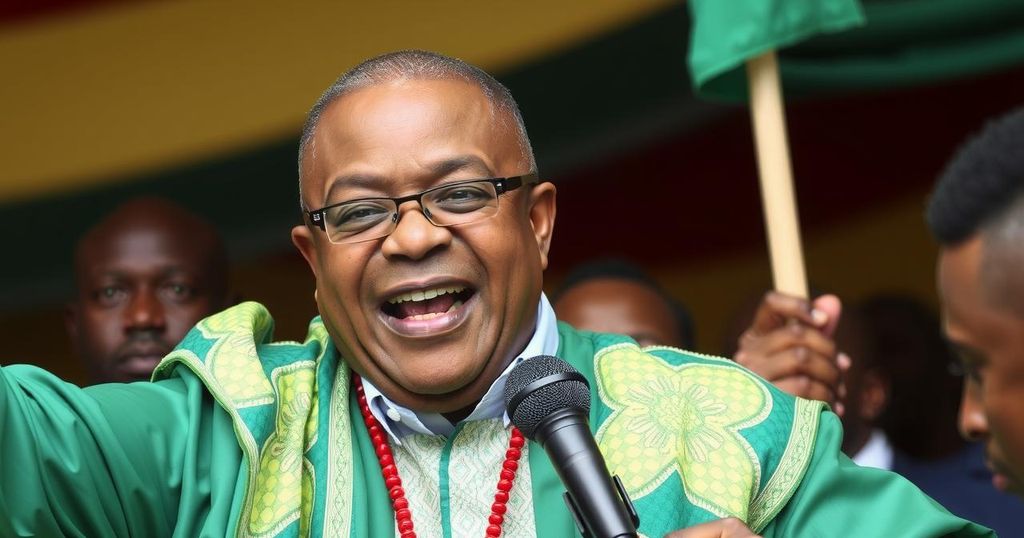Former President John Dramani Mahama won Ghana’s presidential election, with ruling party candidate Mahamudu Bawumia conceding defeat. Mahama’s NDC reportedly secured 56.3 percent of the votes amid a backdrop of economic strife affecting the country. Bawumia’s early concession aimed to ease tensions following reports of scuffles at polling stations. Mahama’s campaign focused on economic renewal, targeting younger voters.
Former President John Dramani Mahama has achieved a significant political resurgence by winning the recent presidential election in Ghana after the ruling party’s candidate, Vice President Mahamudu Bawumia, conceded defeat. Addressing the media from his residence, Bawumia expressed respect for the voters’ decision for change and extended his congratulations to Mahama as the president-elect. While official results remain pending, an internal review by Mahama’s National Democratic Congress (NDC) indicated he secured 56.3 percent of the vote over Bawumia’s 41.3 percent.
Bawumia opted to concede prior to the electoral commission’s official declaration in an effort to mitigate potential tensions, particularly following reports of scuffles at several polling centers. The election was heavily influenced by Ghana’s ongoing economic difficulties, including defaults on debts, currency devaluation, and soaring inflation, all of which have resulted in a $3 billion International Monetary Fund (IMF) bailout. The outgoing President, Nana Akufo-Addo, from the New Patriotic Party (NPP), struggled to address these economic challenges during his tenure.
John Mahama, aged 65, previously led Ghana from July 2012 to January 2017. His campaign sought to engage young voters by promising a comprehensive economic renewal. Although the election day proceedings were generally peaceful, two fatalities from shootings were reported, with the police confirming investigations are underway.
Ghana recently held its presidential election against the backdrop of a turbulent economy, following challenges such as a debt crisis and high inflation rates. These economic issues, along with public dissatisfaction, significantly influenced voter behavior. The election was characterized by the desire for change among the electorate, ultimately leading to John Mahama’s comeback after his initial presidency. Mahama’s National Democratic Congress was positioned against the ruling New Patriotic Party which faced criticism for its handling of the economy. The successful outcome for Mahama represents a shift in political power amidst these economic struggles.
The election results in Ghana underscore a public sentiment favoring change amidst economic hardship, with John Dramani Mahama’s victory signaling potential new policies to address ongoing issues. Mahama’s return to the presidency comes after a period of significant economic challenges for the country, and his administration’s approach will be pivotal in navigating the current crisis. Bawumia’s concession illustrates a commitment to peace in the electoral process, highlighting the importance of stability in Ghana’s democratic practices.
Original Source: www.rfi.fr






